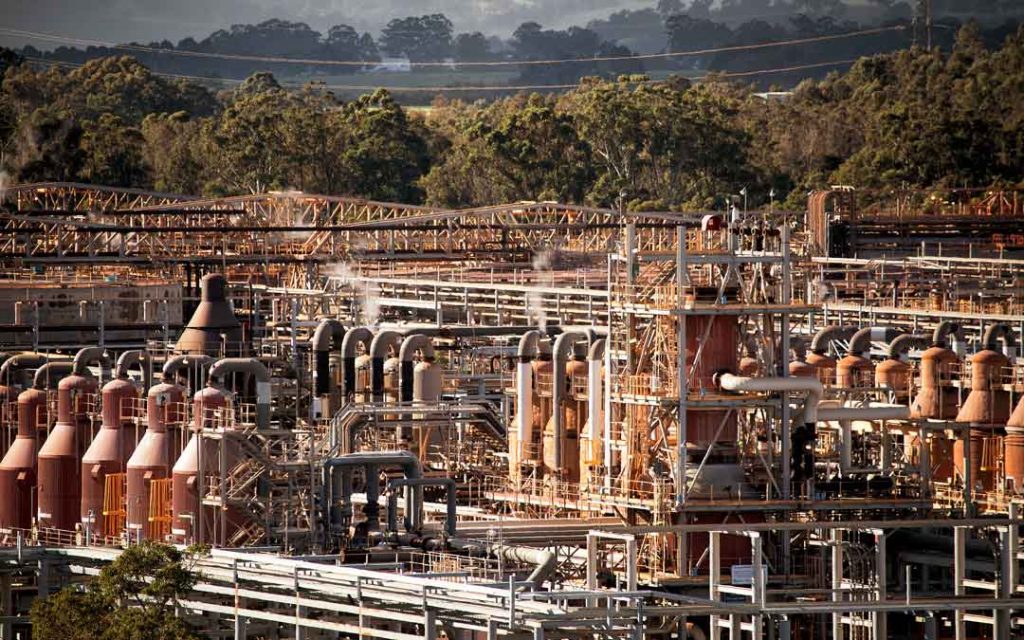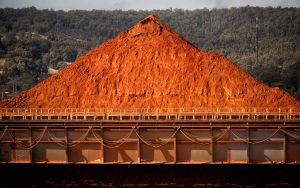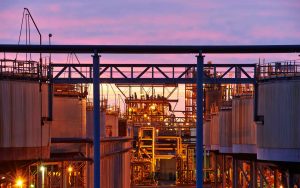Full steam ahead for alumina refineries of the future
A steam recycling technology offers a promising option to reduce emissions from Australia’s alumina refineries

Aluminium giant Alcoa will go ahead with trialling a steam recycling technology aimed at reducing emissions, after a study found the technology was feasible.
In 2021, ARENA provided $11.3 million for a feasibility study looking at the technical and commercial viability of integrating Mechanical Vapour Recompression (MVR) powered by renewable energy in Australian alumina refining processes.
Now, the results of the study are in and it’s good news.
Alcoa is progressing to the next stage of their Refinery of the Future project by installing a 4 MW MVR module at the Wagerup alumina refinery in Western Australia.
Alumina: a hard to abate sector
Alumina is the feedstock for producing aluminium and is refined from naturally occurring bauxite deposits.
Refining it is big business in Australia, but it’s also one of Australia’s most energy and emissions intensive industries.
The $7.5 billion industry accounts for roughly three per cent of Australia’s total annual emissions, using more than twice the energy consumed by Tasmania.
ARENA is working to address this, collaborating with Australia’s alumina producers to find ways to decarbonise the industry.
Last year, ARENA published the Roadmap for Decarbonising Australian Alumina Refining.
Commissioned by ARENA and developed by Deloitte, the report found that deploying four technologies could cut emissions at Australian alumina refineries by as much as 98%.
Among these four technologies, MVR tackles the most emissions intensive stage of refining.
What is Mechanical Vapour Recompression?
More than 70% of emissions from alumina refining are from the Bayer process, which uses steam to dissolve bauxite in caustic soda.
The way alumina refineries do this today is highly energy intensive.

Mechanical Vapour Recompression uses electricity to pressurise waste steam, recycling the water and thermal energy. In today’s refineries almost all waste heat from the process is emitted into the atmosphere, wasting water and energy.
Because recycling steam saves water and energy, MVR reduces costs to the refineries.
In fact, Alcoa’s study found that once the capital costs of switching to MVR have been met, MVR is significantly cheaper than current methods for making steam. In some refineries, the upfront costs of MVR are even cheaper than conventional evaporation.
It’s not all smooth sailing, though. Using MVR in alumina refining is a new idea and one that needs to be tested for Australia’s alumina producers to be confident that it is a reliable option.
It is also going to take a lot more renewable generation. Alcoa’s feasibility study found that it would take 1.2 GW of firmed renewables for all of Australia’s alumina refineries to adopt renewable MVR.
That’s where Alcoa’s MVR demonstration comes in. The Wagerup pilot will help prove MVR’s potential for alumina refining. Lessons from the project will help inform further development.

Alcoa’s Refinery of the Future Director, Darren Shanahan says Alcoa is pleased the initial study shows implementation of MVR appears technically and commercially feasible.
“With the current alumina and aluminium industries being major fossil fuel energy users and greenhouse gas emitters, decarbonisation is a critical focus area for operators, governments and broader society,” he said.
“Driven by renewably generated electricity, MVR could make a crucial contribution to decarbonisation of the alumina industry here in Australia and across the globe and materially reduce water consumption in alumina refinery processes.”
Construction is due to start at Wagerup in mid-2023 with the MVR system expected to be operational in 2024.
LIKE THIS STORY? SIGN UP TO OUR NEWSLETTER

ARENA